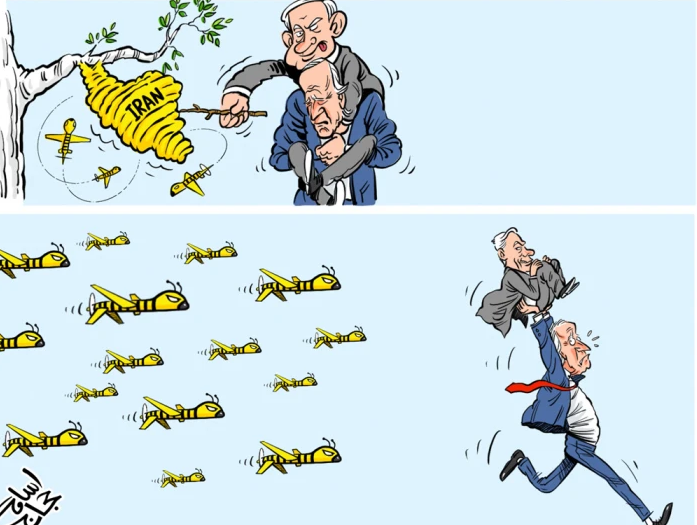|
Local View / Checkmate: Iran seems to know the right moves |
 |

By John Freivalds
Duluth News Tribune
Published 5/22/2024
I was not invited to the celebration marking the 2,500th anniversary of the founding of the Persian Empire in 1971, even though I was living in Iran. But my big boss, David Lilienthal, founder of the Tennessee Valley Authority, was there. The shah and Lilienthal were buddies, as both were big thinkers. I mean, really big: irrigate 300,000 acres, build huge dams, attract Western companies to invest, that sort of thing. Lilienthal was one of hundreds of world leaders to attend the event held at an air-conditioned series of huge tents at Persepolis, the capital of the old Persian Empire. President Richard Nixon was to come but canceled at the last moment and sent VP Spiro Agnew.
That was 53 years ago. Why does it matter now? It marked the end of an era in oil-rich Iran and, really, the beginning of another — and we have to stop thinking that the Iranians just began to dislike us out of the blue.
The shah (“king” in Farsi) wanted to make Iran (very) great again, and the celebration ironically marked the height of the shah of Iran’s influence in the world and helped bring about his downfall as well as the ensuing old issue of “my country right or wrong.”
OK, a few event factoids: The National Film Board of Iran produced a documentary of the celebration, “Flames of Persia,” narrated by famous actor Orson Welles. The shah said it was “a period of renaissance” for Iranians. The shah hired French architects, interior decorators, and couturiers to design 50 tent-like suites for the royal visitors, right next to the ruins. A main tent, measuring 233-by-78 feet, was to be the banquet hall. The tent city took a year to build and 121,000 feet of silk. The tents were arranged along five avenues, radiating out from a central fountain.
Wikipedia described it: “Sixty members of royal families and heads of state were assembled at a large serpentine table. … They dined off a special (Spode) dinner service of 10,000 plates … (with) each plate decorated in turquoise and gold, with the Shah’s coat of arms. … The food and the wine were provided by the Parisian restaurant Maxim's,” which had closed for two weeks to prepare all the food. Some 600 guests dined over five and a half hours, “making for the longest and most (lavish official) banquet in modern history, as recorded in successive editions of the Guinness Book of World Records. … 50,000 song birds were imported from Europe.” There was a parade of 1,724 men in period costumes.
Also, Dom Pérignon 1959 champagne was served.
Iran was a poor peasant agriculture country — but getting richer by the second at the time. But excesses of the shah, like this celebration, were swept aside by SAVAK, Iran’s security service. In the wake of a successful revolution by Islamic fundamentalists against the pro-American shah of Iran, the U.S. became an object of virulent criticism and the U.S. embassy in Tehran was a visible target. On Nov. 4, 1979, Iranian students seized the embassy and detained more than 50 Americans, ranging from the chargé d’affaires to the most junior staff members, as hostages. One of them was Micheal Metrinko, a Georgetown University classmate of mine and the only Farsi speaker among the diplomats. Did he have some stories to tell!
The U.S. CIA entered the picture. “From 1953 to 1977 millions of CIA dollars were used to subsidize Iran's … religious affairs in an effort to maintain support for the Shah among the nation's (clerics),” read a 1980 CIA document . 1953 marked the CIA’s efforts to overturn an Iranian election and install the shah. President Jimmy Carter cut off the payments in 1979, and a year later a revolution swept the country and the shah was forced out.
It’s telling that the English phrase “checkmate” comes from the Farsi “sha mate,” plus “the king is dead.” Iran’s hate of the U.S. didn’t just drop out of the sky. It was helped along by some very unfortunate alliances and moves that we made.
We are better at checkers.
John Freivalds of Wayzata, Minnesota, is the author of six books, is the honorary consul of Latvia in Minnesota, and is a regular contributor to the News Tribune Opinion page. His website is jfamarkets.com.
